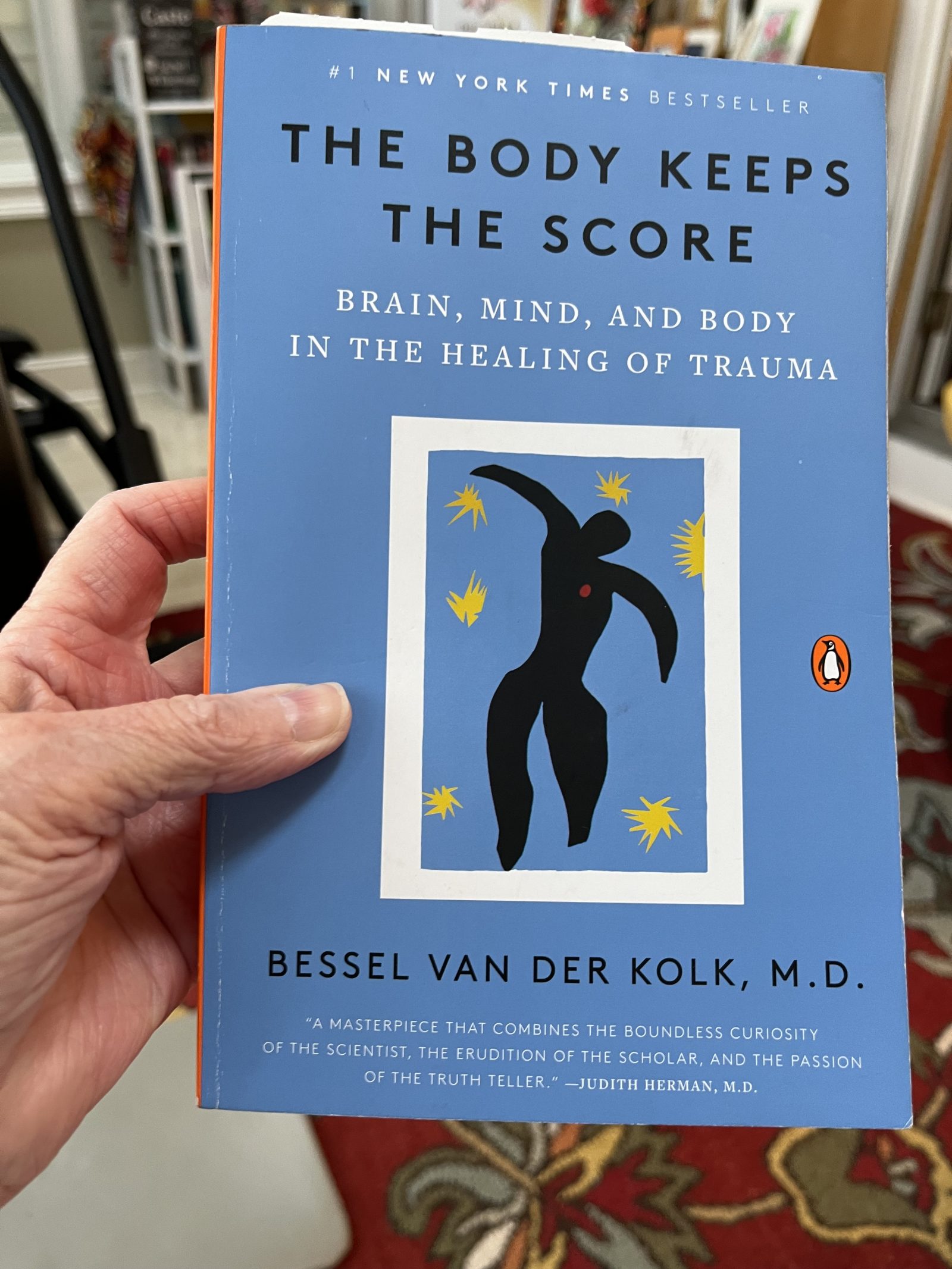We flew home from a wonderful Christmas visit with our son Jason and his wife See and their daughters, Grace and Anna in Cave Creek, Arizona, last night. Arriving home close to midnight. But . . . just as we were walking through the airport to retrieve our luggage, I realized that I had left the book I was reading during the trip on a shelf in the women’s bathroom. I hurried back to find it, but evidently, I went into the wrong bathroom, and it wasn’t there. But I asked the nice woman who was cleaning the bathrooms how I might find it, and she said to ask the security officer as I exited. Which I did. But no one had turned the book in.
So, later that night I got a phone call from an employee who cleaned the bathrooms and found my book with my business card and phone number inside. She offered to meet me the next day at a gas station near the airport to return the book to me. After she had worked her late shift at the airport. I might have just said no, just trash the book and I’ll get another copy. . . but this was an important book to me, with notes in the margins and all that. And somehow she must have sensed that, since she called me and made arrangements to return the book to me the next day.
When I pulled up to the gas station she recommended, she pulled up and waved the book out of her window. I ran over to her car and thanked her, giving her a copy of my recent book about angels and a small financial thank-you and I wished she had gotten out of her car so I could hug her. She had gone out of her way to return the book to me and even said, at one point, “I think this book could also help me.” I should have left her my copy.
I started reading this New York Times bestseller recently, hoping to find some help for unresolved childhood issues, at the recommendation of several friends. The Body Keeps the Score: Brain, Mind, and Body in the Healing of Trauma by Bessel Van Der Kolk, M.D. was published in 2014, but I only discovered it recently. Dr. van de Kolk is the founder and medical director of the Trauma Center in Brookline, Massachusetts. He is also a professor of psychiatry at Boston University School of Medicine and director of the National Complex Trauma Treatment Network.
So why would I be reading such an academic work about trauma? Of course much of the book deals with PTSD in soldiers who are war victims. But the author also addresses people who have been traumatized in childhood, as I was. I’m only about one third of the way through the book, but I’m continuing to explore the knowledge between its covers, and I’m so thankful to this kind and selfless woman who called me and met me to return the book. . . . after working her night shift at the Memphis airport.
God works in mysterious ways.
